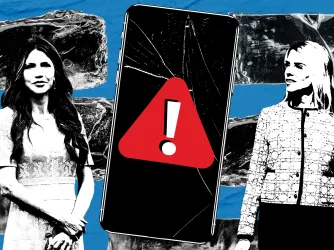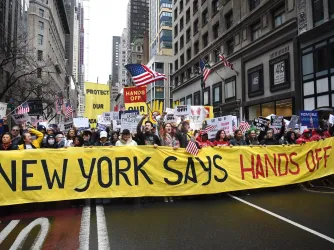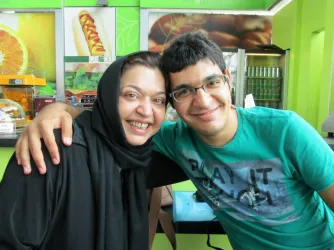Table of Contents
After students blockade Heather Mac Donald talk, Claremont McKenna reaffirms commitment to free expression, due process

Claremont McKenna College, a member of the Claremont Colleges in Claremont, California, has completed student conduct proceedings related to seven students involved in a “blockade” to prevent others from hearing a talk by Heather Mac Donald, a conservative author who had been invited to speak on campus, according to a statement issued by the college.
In the wake of the protests, David Oxtoby, the president of Pomona College, another school within the Claremont Colleges, condemned the actions of those who participated in the blockade, stating that the school could not support “the act of preventing others from engaging with an invited speaker.” Claremont McKenna president Hiram Chodosh echoed Oxtoby’s statements on April 7, promising to hold those who prevented Mac Donald from being heard accountable.
The completion of the conduct process has done just that. Claremont McKenna identified 12 students of the approximately 170 who protested, charged 10 with conduct violations, and found responsible and sanctioned seven students. Of those sanctioned, three were suspended for one year, two were suspended for a semester, and two were placed on probation.
Claremont McKenna’s statement contained a reaffirmation of the school’s commitment to free speech:
In the aftermath of the blockade on April 6, the College learned important lessons that must further strengthen our resolve. Our Athenaeum must continue to invite the broadest array of speakers on the most pressing issues of the day. Our faculty must help us understand how to mitigate the forces that divide our society. Our students must master the skills of respectful dialogue across all barriers. Our community must protect the right to learn from others, especially those with whom we strongly disagree. And Claremont McKenna College must take every step necessary to uphold these vital commitments.
FIRE is glad to hear this. As we have written before, the freedom to speak includes the freedom to hear. Supreme Court Justice Thurgood Marshall wrote eloquently in his dissent in Kleindienst v. Mandel (1972) that “[t]he freedom to speak and the freedom to hear are inseparable; they are two sides of the same coin.” Marshall wrote similarly for the majority of the Court in Stanley v. Georgia (1969) (internal citations removed):
It is now well established that the Constitution protects the right to receive information and ideas. “This freedom (of speech and press) . . . necessarily protects the right to receive . . . .” This right to receive information and ideas, regardless of their social worth . . . is fundamental to our free society.
These statements draw upon both the legal and ideological reasoning behind free expression. Without the freedom to be heard, the freedom to speak is meaningless. The famed abolitionist Frederick Douglass understood and articulated this principle well, saying, “To suppress free speech is a double wrong. It violates the rights of the hearer as well as those of the speaker. It is just as criminal to rob a man of his right to speak and hear as it would be to rob him of his money.”
In yesterday’s statement, Claremont McKenna also reaffirmed its commitment to another issue near and dear to the hearts of all of us at FIRE: due process.
The College followed a full, fair, and impartial student conduct process before the determination of findings, sanctions, and the resolution of appeals. Efforts to politicize and interfere with this process had no influence on timing or decisions. Students had an opportunity to be heard, pose questions, ask for further investigation, and raise objections throughout the process. The independent panel of three (one panelist each from the faculty, staff, and student body) determined their findings of responsibility on a preponderance of video and photographic evidence and a limited amount of witness testimony. Sanctions were based on the nature and degree of leadership in the blockade, the acknowledgment and acceptance of responsibility, and other factors.
When a severe sanction like suspension is on the line, due process is of utmost importance. Students accused of serious offenses should have their due process rights respected and protected. They should be allowed to be accompanied and actively assisted by counsel. An article published by Inside Higher Ed reports that the accused students were advised by an attorney, but it is not known whether she was permitted to actively participate.
Nonetheless, Claremont McKenna’s public statements are worthy of commendation. Free speech and due process are crucial, and it is good to see the college take a position so in furtherance of those ideals.
Recent Articles
Get the latest free speech news and analysis from FIRE.

FIRE sues Bondi, Noem for censoring Facebook group and app reporting ICE activity

Deep dive into New York’s proposals to ban demonstrations near houses of worship

Iran replaced my mother’s voice with silence
